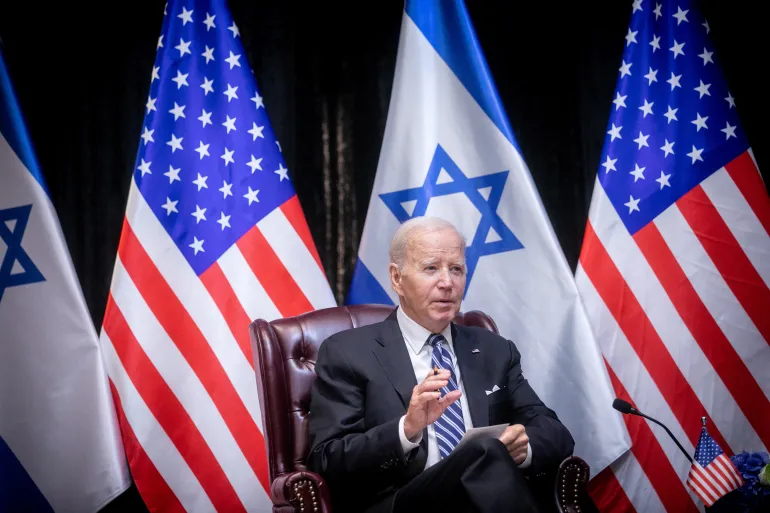On Sunday, G7 leaders condemned Iran’s unprecedented attack on Israel and urged all sides to exercise “restraint”.
“We unanimously condemned Iran’s unprecedented attack against Israel”, European Council President Charles Michel wrote on X, formerly Twitter, following video talks. “We will continue all our efforts to work towards de-escalation. Ending the crisis in Gaza as soon as possible, notably through an immediate ceasefire, will make a difference.”
The leaders offered their full support for Israel, saying they were ready to “take further measures” in response to “further destabilising initiatives”.
“We will continue to work to stabilise the situation and avoid further escalation. In this spirit, we demand that Iran and its proxies cease their attacks, and we stand ready to take further measures now and in response to further destabilising initiatives,” they said in a statement published by the Italian G7 presidency, following a video meeting.
Meanwhile, world leaders urged restraint after Iran launched an unprecedented wave of missiles and attack drones against its arch foe Israel overnight, at a time the Gaza war has inflamed Middle East tensions.
Iran launched the attack, its first ever to directly target Israeli territory, in retaliation for a deadly air strike widely blamed on Israel that destroyed its consular building in Syria’s capital early this month.
Israel and its allies intercepted the vast majority of the incoming projectiles, the Israeli army said, reporting 12 people injured and no deaths, but the attack sharply heightened fears of an Israeli counterstrike.
Israel’s top ally the United States also urged caution and calm.
“We don’t want to see this escalate,” White House National Security Council spokesman John Kirby told NBC. “We’re not looking for a wider war with Iran.”
President Joe Biden reaffirmed “ironclad” US support for Israel, but also appeared to guide its ally away from a military response against their common adversary Iran.
News outlet Axios reported that Biden had told Israeli Prime Minister Benjamin Netanyahu that he should “take the win” and that Washington would oppose an Israeli counterattack.
Before Tehran attacked, Israel’s military had warned Iran it would suffer the “consequences for choosing to escalate the situation any further”.
Netanyahu was on Sunday meeting his war cabinet, put in place amid the Gaza conflict sparked by the October 7 attack by Palestinian militant group Hamas.
Through the night, air raid sirens wailed and Israeli citizens sought cover in bunkers and shelters, as missile defence systems and fighter-jets intercepted drones and missiles in the night skies.
Iranian President Ebrahim Raisi on Sunday warned Israel against a “reckless” retaliation, warning that this would spark “a decisive and much stronger response”.


